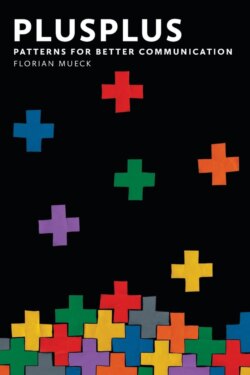Читать книгу PlusPlus - Florian Mueck - Страница 22
На сайте Литреса книга снята с продажи.
ONCE UPON A TIME
ОглавлениеBack in the days when there were no iPads, no cell phones, no computers, no television, back in the days when radio didn’t even exist, back in those days the epitome of communication was the storyteller.
We humans love stories. We love to hear stories; we love to tell stories. Hence, it’s only common sense to tell stories in speeches. But, as Voltaire put it: Common sense is not so common. Most public speakers completely forget about telling stories.
One of my clients is a European market leader in distributing frozen food. In a seminar I asked a bunch of the sales guys about their competitive advantage. Without thinking, and in unison, they replied:
We have the integrated frozen food chain.
Now, I’ve played baloney-bingo myself (I was a business consultant for almost a decade), so I thought, What a great blah-blah phrase! I wanted to know more about it.
During our lunch break my clients explained their integrated frozen food chain to me. I learned about a Swedish farmer named Mr. Mallmö, who grows peas. A driver picks them up, and in less than two hours the fresh product has been flash-frozen. After they’ve been packaged, the peas are delivered to sales centers throughout Europe — one of them in Kamp-Lintfort, close to Düsseldorf. Thomas Müller is a driver there. His client, the 92 year-old Mrs. Theissen, sometimes orders peas. When she does, Thomas drives to her home and walks up to the fourth floor carrying the peas in a special box. Thomas Müller usually chats about life for a while with Mrs. Theissen, before he takes the peas to her freezer, opens the door, and places them on the shelf. From a Swedish field to Mrs. Theissen’s freezer — an integrated frozen food chain.
I looked at them, frowned, and asked, Why don’t you tell that story instead?
Stories connect with people much more than fancy marketing expressions ever could. As you’ve already learned, personal anecdotes and stories make a great opening, so you can connect right from the start.
Once I gave an inspirational speech at the Berlin-based web conference Heureka! 550 people out there in front of me, poor acoustics with a severe echo, and high expectations. It was then that I experienced the power a personal anecdote can have as a speech opener:
Last Tuesday morning I woke up in our home in Bigues i Riells, a small mountain village on the outskirts of Barcelona. I woke up because someone was licking my hand. It was Lucas — our Golden Retriever.
I turned around to give Rose, my sweetheart, a good-morning hug, but then I remembered that she was on a business trip to Madrid.
So I got up, went to the kitchen, and made myself some coffee. I opened the computer, checked my Twitter account, then had my first sip of coffee.
I got dressed and went out. It was a sunny day — as usual. I went to the mailbox to pick up the mail, and that one letter caught my attention in an instant. I rushed back to the kitchen, dropped the other letters, opened the envelope, unfolded the letter, and thought — Heureka!
You should’ve seen them. Without saying anything, but building suspense, I managed to get everyone in the entire room listening to me, right from the start. It was fantastic!
It’s a good idea to begin your stories at a particular moment in the past, like last Tuesday morning or two months ago. That signals that a story is coming, and your audience will be hooked right away.
Your life is full of the greatest stories you could possibly tell. Tell as many stories as possible. And the best thing? These stories are already in your head. You don’t even need to use notes.
Boost your content even more by telling stories.
